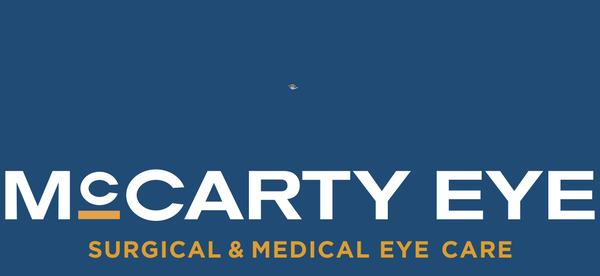- Can I drive if I'm dilated?
Dilation is a process done most times when you visit your eyecare professional. Drops are used to enlarge your pupils allowing your doctor to get a better look at the inside of your eyes. While dilation does affect your vision, everyone is different. Many patients feel comfortable driving themselves after their eyes have been dilated only requiring sunglasses. Others have a much more significant temporary alteration to their vision rendering them uncomfortable to drive themselves. If you are unsure how you respond to dilation, it is recommended that you bring a driver with you to your eye appointment.
- How long will my appointment be?
A typical full ophthalmological eye evaluation ranges from 1-2.5 hours depending on whether it is your first time seeing the doctor or if it is a follow up visit, whether you will need to be dilated and have testing or just a post op visit, or if you are scheduling surgery. Know that at McCarty Eye, we value your time and work as efficiently as possible to move you through your appointment, but be assured, Dr. McCarty will gladly spend as much time with you as you need and will answer all of your questions and explain your condition and treatment options.
- What drops can I use for allergies?
Living in west Texas, allergies are quite common. If you suffer from itchy eyes or experience a thick, sticky tear discharge, you might have allergy eyes. Most prescription eye drops for allergic conjunctivitis are now available over the counter and are quite effective. You may safely try one of these to see if you get any relief.
- Are lubricating drops, artificial tears, and redness relief drops the same thing? How often can I use them?
- Artificial tears is the generic name for any eyedrop used to moisten the ocular surface and supplement your own natural tear production. They come in many different varieties. I personally recommend using artificial tears of some kind every day a minimum of twice daily. I recommend using a good, branded name tear drop and not the generic variety.
- I would also recommend you avoid using drops that claim to relieve redness as your daily lubricating drop. They are OK to use every once in a while, but used daily, they can make your eyes chronically red.
- Allergy eyedrops should be used for allergy symptoms only, not for relieving dryness as they can cause decreased tear production and actually exacerbate dry eye symptoms.
- Can you do my glasses prescription?
- Yes. At McCarty Eye, we are certainly trained to refract patients and determine the best glasses prescription for them.
- However, our main focus is your medical and surgical ocular health and treatment. We typically recommend that you visit your optometrist to obtain your glasses prescription as they are usually better suited to create a glasses prescription and pair of glasses that meet your specific needs.
- Is it safe to use Visine? What can I use for red eyes?
Visine and other drops for red eyes typically work very well for a temporary period of time; however, they do not treat the underlying cause of the red eyes. When used chronically, redness relieving drops tend to create a rebound effect that propagates the red eye symptoms. I recommend you use these drops sparingly and focus on treating the underlying cause of red eye which could be dry eye, allergy, inflammation, or a number of other etiologies.
- What can I use to clean my eyelids?
- Eyelid hygiene can be a very important part of treating dry eyes and ocular inflammation. The most commonly recommended method is to place a warm compress like a wash cloth soaked in warm water over the closed eyelids for a few minutes. Follow this with gently scrubbing the eyelids and lashes with that same wash cloth either by itself or with a small amount of baby shampoo.
- This treatment helps to clear off any debris or excessive bacteria that build up around your eyelashes as well as improving the function of the eyelid oil glands that are critical for a healthy tear film.
- Why is my eyelid twitching?
- There are two main types of eyelid twitching. Blepharospasm is an exaggerated, involuntary blinking of one or both of your eyes that is very obtrusive to your daily life. This is a medical disorder that can be treated usually with Botox injections into the spastic muscle.
- The more common type of eyelid twitching involves usually just the upper or lower lid of one eye that begins to twitch rapidly but not in an exaggerated fashion. It can last minutes or hours but it typically resolves on its own. Factors that can increase the frequency for this type of lid twitch include dry eyes, excessive fatigue or lack of sleep, and stress.
- What kind of sunglasses do you recommend?
Sunglasses vary from cheap to very expensive depending on the different quality and features offered by the lenses. One thing that increases the cost of sunglasses is the quality of the material the lenses are made from. The higher quality lens materials provide much better optics and visual quality. Other features can be added to more expensive lenses that the buyer may find beneficial and worth the additional cost. These include polarized lenses, UV blocking filters, anti-glare and anti-scratch coatings, and safety strength features useful for many worksites.
- Why do my eyes tear/water so much?
- Tearing eyes can be classified into two possible reasons: 1) ocular irritation causing reflexive tearing or 2) a blocked tear drainage duct causing an overflow of natural tears.
- Tearing that is intermittent is most likely due to ocular irritation from dryness, allergies, or irritants in the air. Treatments include managing dry eyes or removing the allergen or irritant.
- Tearing from a blocked tear duct is much less common. This tearing is present all waking hours without relief and typically does not fluctuate depending on activity, environment, or dry eye therapy. It can be confirmed and usually treated in the clinic.
- Why do my eyes burn?
- Why do my eyes itch?
- Itching eyes is typically associated with allergies but can also be a symptom of dryness.
- Using artificial tears 2-4 times a day is a good place to start treatment. If the symptoms continue, I recommend trying over the counter allergy eyedrops as these can be very effective against allergic eye symptoms.
- Why do my eyes feel gritty?
- My eyelids feel dry, what can I use?
For dry, itchy, or irritated eyelids, applying Vaseline to the affected areas at night is both safe and effective in relieving these symptoms.
- Are cataracts hereditary?
There are many different causes of cataracts including age, genetics, medications, trauma, metabolic diseases, among others. While increasing age is by far the most common risk factor for developing cataracts, those with a family history of early cataract development may also develop cataracts at a much younger age.
- Is it safe to get eyelash extensions?
Eyelash extensions are perfectly safe. As with any cosmetic procedure, I would always use a reputable technician and make sure you get references from others who have used the particular technician you are planning on using.
- Can you give me drops to reverse the dilation?
Dilation of your pupils is necessary for a complete and thorough ocular examination. The process of dilation usually has a temporary effect on your vision causing increased light sensitivity, blurred near vision, and distorted distant vision. Dilation drops typically last about 3-4 hours but may last up to 24 hours in some individuals. While there are drops to reverse the dilation, we do not typically use them as they are only minimally effective. Please plan to have your eyes dilated during your exam. If you do not feel comfortable driving while dilated, you should plan to bring a driver with you.
- I have flashes of lights and/or floaters, what could that be?
- Many people experience floaters in their vision. These can be black, grey, transparent circles, lines, webs, or squigglies that move across your vision as you look around. They tend to be more noticeable at certain times with different types of lighting or backgrounds than others. Floaters themselves are harmless and usually become less noticeable over time.
- If you notice a sudden onset of multiple floaters especially associated with flashes of light similar to lightning bolts in your vision, this could be an indication of a more serious condition. This can occur when the vitreous inside of your eye, the clear egg-white like gel that fills 80% of your eye, begins to shrink and contract typically seen as our eyes age. As the gel contracts, it pulls away from the inside wall of the eye, which is the retina the film of our eye, which can cause a tear in the retina. A tear in the retina can lead to a retinal detachment which is a sight-threatening surgical emergency.
- If you notice the sudden onset of new floaters or flashes of light, you need to be seen. Call and make an appointment.
- Why does my vision fluctuate throughout the day?
- Fluctuations in your vision during the day or certain activities like reading, driving, or up-close handwork can be very frustrating. The most common cause of this fluctuation is dry eyes. As we do up close work or drive, we tend not to blink as much causing our ocular surface to dry out. For those with dry eyes, this problem gets magnified.
- Simple tricks can help limit this fluctuation. Start with using artificial tears more often while doing such activities. While reading or doing other up-close work, take a brief pause, refocus at distance, and blink a few times every few minutes then resume your activity.
- Also, limit air movement around your eyes. This may involve stopping or at least reversing the direction of your ceiling fans. While driving, direct all air vents away from your face. Using a room humidifier in the room where you perform the problem activity the most can also be helpful.
- If the problem persists, a thorough dry eye exam and additional treatments may be necessary.
- I wake up with a lot of matting around my eyes. How do I clean it off and why does that happen?
- While we sleep, our eyes can dry out due to a lack of tear secretion. If our eyes are dry or were exposed to allergens or irritants, they produce a mucous substance to soothe the ocular surface. This mucous can look like pus but is not infectious. It can collect on the eyelids and even dry and become crusty.
- By placing a warm, moist wash cloth on the eyelids for a few minutes, this mucous can then be wiped away safely.
- If this is a regular problem, you may benefit from lid hygiene techniques discussed on the dry eye treatment page.
- What eye vitamins do you recommend?
- There are several different nutritional supplements that can be beneficial to your ocular health.
- For those with macular degeneration, taking a vitamin that specifies the AREDS 2 formula are recommended. These can help slow the progression of the disease process, but there is no evidence that they help prevent macular degeneration if you do not already have it.
- For dry eyes, many have claimed that taking Omega 3 fatty acids can be of some benefit. There are no confirmatory medical trials, there is significant anecdotal evidence that these decrease inflammation of the ocular surface and increase patient comfort.
- How often should I have an eye exam if I’m diabetic?
- If you are a newly diagnosed Type I insulin dependent diabetic, you need to get your ocular exam within 5 years of your diagnosis and every year after that.
- If you are a newly diagnosed Type II diabetic, you need to get a dilated eye exam as soon as you can. You may have had diabetes for years that was not detected and you may already have damage to your eyes.
- The importance of diabetic eye exams is twofold. First, diabetes damages the tiny blood vessels throughout your entire body. We can actually see these blood vessels in your eyes. If damage is seen there, the assumption can be made that there is damage to these tiny blood vessels throughout your entire body. It is a good marker of your diabetic damage not just in your eyes, but throughout your body.
- Secondly, where there is diabetic vessel damage to the retina in your eyes, if caught early and treated before it has caused damage to your vision, your vision can be salvaged. Once your vision is affected, restoring your vision back to normal can be very difficult.
- What is the best way to clean my glasses?
- Today’s quality glasses can be very expensive, so it is wise to take good care of them. Part of that includes how you clean the lenses. The best way to clean your glasses is to use a specific glasses cleaning spray or solution along with a lens cleaning cloth or microfiber cloth.
- Using a Kleenex or shirt or other rag can cause damage to the lenses or the coatings applied to the lenses such as a glare reducing film.
- Proper care also includes having an optical technician periodically adjust and clean your glasses. Many patients get frustrated when their glasses don’t stay in place and are constantly adjusting them. Many times, a simple adjustment at the optical office can tighten the fit as the fit typically loosens as we wear the glasses over time.
- Why do my eyes feel like they have a film over them?
- When describing a film over the eyes, we must first determine if this is something that fluctuates or is the vision filmy all the time.
- If the vision is filmy or cloudy constantly, you may have cataracts or, if you’ve had cataract surgery, posterior capsule opacification, which can commonly develop after cataract surgery, or any number of other conditions. You should see your eye care specialist to have this problem evaluated.
- If the cloud or film fluctuates throughout the day or is present at times but not at all other times, then you are likely suffering from another symptom of dry eye. When our eyes become dry, the ocular surface secretes a mucous that helps protect and moisten the eye. Unfortunately, this mucous is thick and can blur our vision. Treating dry eye with artificial tears along with the other treatment modalities may improve your symptoms.
- Is it ok to sleep in contacts?
- Many contact lenses are made to be slept in. I know it can be more convenient to sleep in contacts rather than taking them out at night and putting them in the next day.
- In my experience, the patients I see in my office with contact lens related problems like corneal ulcers or keratitis are those who sleep in their lenses.
- While these conditions typically respond well to treatment, it is quite possible that they can leave permanent damage, like a corneal scar, that will affect vision for the rest of your life.
- Can I use water to rinse my eyes out?
- Saline is perfectly safe to use to wash your eyes out if you get a foreign body in your eyes or your eyes become matted or experience a lot of discharge.
- For day to day relief from persistent ocular irritation, burning, scratching, itching, etc., I would recommend you get into the routine of using artificial tears 2-4 times a day every day, even when your eyes feel good. This can provide more of a preventative benefit to limit how often and how severe your symptoms become.
- I see a spiral, flashing light for about 15-30 min, what could that be?
- Transient visual episodes that are described as 15-30 minutes of a gradually enlarging kaleidoscope, jagged lines, spiral of light, etc. In one or both eyes that completely resolves is most likely an ocular migraine.
- Many times, this is the aura that can precede a typical migraine headache, but quite often patients only experience the visual portion and never develop the headache.
- While this can be very disturbing the first time it occurs, it typically does not leave any residual visual damage.
- What do I do if I get something in my eye?
- If you notice something fall or blow into your eye or you simply have the sudden onset of a foreign body sensation, the first step is to rinse your eye out with artificial tears or with a saline solution.
- If this does not resolve the issue, you need to see an eye care specialists as you may need to have this foreign body removed in the clinic.
- Do you take vision insurance?
- No. Vision insurance is typically utilized by optometrists and optical shops. Vision insurance plans typically cover annual eye exams and contacts or glasses.
- Ophthalmology is a branch of medicine; therefore, we accept most medical insurances. The type of diseases we treat fall under your medical insurance plan.
Quick Links
Our Services
Get in touch
McCarty Eye7411 Wallace Blvd
Amarillo, TX 79106
(806) 351-1177
© 2026 McCarty Eye. Website By Nobox Creative



